All posts by Fabi
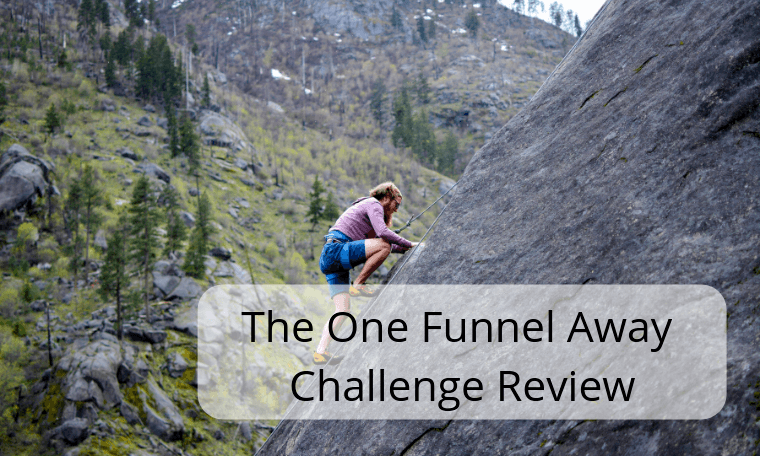
The One Funnel Away Challenge Review
Have you heard of the One Funnel Away Challenge of Russell Brunson and ClickFunnels? But what exactly is the One Funnel Away Challenge and for whom is it for?
Learn more about it in this article!
What is the One Funnel Away Challenge
The One Funnel Away Challenge is a four weeks training program by the founder of ClickFunnels Russell Brunson. Each day you’ll get training videos and todo tasks you’ll need to work on. In addition, you’ll get a physical workbook and some other cool stuff I’ll explain more in detail below!
The goal of the training program is to help you launching a high converting funnel for your product or service.
How is the One Funnel Away Structured?
Each week of the training program is designed to work on one important part of your funnel. Let’s dive into the different weeks and what you’ll learn in each week.
Pre-training, Belief
The first week is all about your mindset. In this pre-training
Week #1: Hook, Story, Offer
After the pre-training the real first week of your training starts. In this week you’ll learn everything about creating and structuring your offer. Each part of a successful funnel can be structured into hook, story, and offer. In the One Funnel Away
Week #2: Your Hooks and Stories
In the second week of the training, you’ll learn everything about hooks and stories. You’ll learn how to create an epiphany bridge (Hint: If you have never heard of the epiphany bridge, check out DotComSecrets) and how to create and test your hooks and stories.
Week #3: The Funnel
In the third week of the training, you’ll finally create your first funnel. You’ll learn how to create your squeeze page, your sales page and all the parts you need for your funnel. (Hint: All the videos are created for ClickFunnels – Check out here my review)
Week #4: Make It Rain
After creating your first funnel in week 3 you’ll now learn how to fill your funnel with traffic. You’ll learn more about the three types of traffic and the concept of the dream 100 (hint: check out Expert Secrets). You’ll also learn what to do if your funnel flops.
Week #5: Post Training
After the four weeks training you should now have a working funnel. But what should you do now? In the post training week you’ll learn what to do the next 30, 60 and 90 days so you can keep up the momentum and scale your funnel.
What does it cost?
The One Funnel Away Challenge costs $100. This includes the four weeks training plus some bonuses. One of these bonuses is the 30 Days book. In this book, Russell Brunson asked 30 two-comma club winner (people who have made over 1 million in sales with ClickFunnels) what they would do if they had to start from scratch with no money, no following, no email list, etc.
What this book includes is 30 different plans how successful online entrepreneurs would create their first funnel/online business if
What does it include?
The One Funnel Away Challenge includes:
- 30 Days of Video Missions from Russell Brunson
- 30 Days of Coaching from Stephen Larson & Julie Stoian
- One Funnel Away Challenge Customized Kit
- Physical Copy of the Challenge Workbook
- MP3 Player
- 30 Days Hardcover Book
- Unlimited Access to 30 days Interviews
- Behind the Scenes-Two Comma Club Interviews
Who is the One Away Challenge for?
I believe that the One Funnel Away challenge is an amazing training program for everyone who wants to successfully build an online business. This training can be great for beginners as well as experienced marketers. I’m already working in the online marketing business for almost 2 years but I have learned many new concepts and insights that are really helpful.
Conclusion
The One Funnel Away challenge is a four weeks training program by Russell Brunson designed to help you building your first profitable funnel whether you’re an experienced marketer or beginner.
They could sell this training easily for several thousand dollars but all you need to pay is $100. I have made the challenge myself and I believe it is one of the best training programs in the online marketing space.
Not only, you’ll get training videos but also assignments that guide you to your first successful funnel. Here you can join the challenge!
Have you already done the One Funnel Away challenge? What do you think about it? Let me know by leaving a comment below!
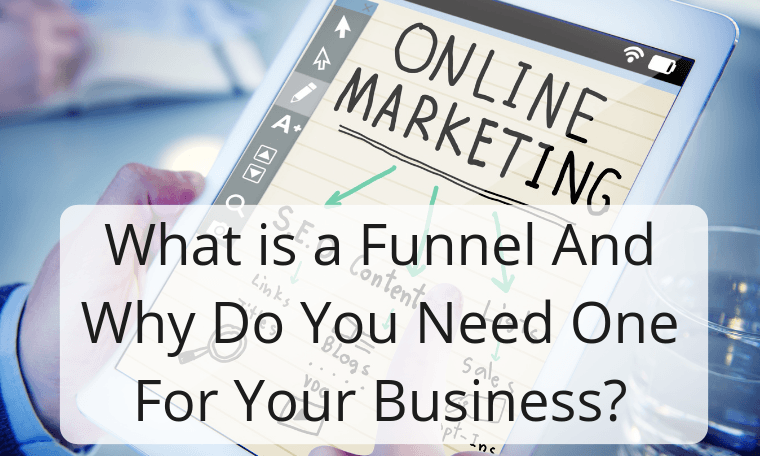
What is a Funnel And Why Do You Need One For Your Business?
While talking to other entrepreneurs what their biggest challenge about digital marketing is I usually get two different answers:
- “I’m asking myself how I can get more customers from the internet. There are so many strategies and I don’t know which is right for me.”
- “How should I have time for Facebook, a blog, …?”
I can understand that.
How about you?
In this article, I want to show you a proven strategy on how you can save a lot of time by automating your processes and how to get more ideal customers for your business.
With a funnel.
Your website is one of your employees and it has to do a certain job to do.
I’m pretty sure that every entrepreneur needs at least one sales funnel.
What is a funnel?
I’m pretty sure you know a funnel you can use in the kitchen.
A funnel has a big entrance and a much smaller exit.
The word funnel can be a little confusing when it’s used in the online marketing space because not everything what is entering our funnel on the top is exiting our funnel on the bottom. You can rather see your funnel as a filter.
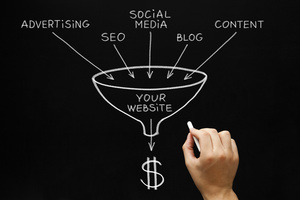
We are using this funnel to get from a huge amount of visitors (huge entrance) to a smaller amount of people who are interested in our product or customers (small exit).
What kind of funnels are there?
If you listen to people talking about funnels they are usually talking about three different categories:
- sales funnel
- marketing funnel
- conversion funnel
However, all these funnels are the same.
Usually, the marketing takes place before a sale so you can split them into two different funnels. But the goal of both funnels is a conversion.
A conversion can be filling out a form or a sale.
Conversion: A conversion is the transformation of a status. For example, a lead converts into a customer.
In this context the conversion rate is important. The conversion rate describes the number of people who took a specific action in percent. When 100 visitors on our website convert into 5 customers we have a conversion rate of 5%.
Example funnel for coaches and consultants
Let’s have a look at a funnel and how it can help us attract new customers. The following drawing is an example funnel for coaches and consultants:

Let’s have a look at the elements
- The funnel starts an ad (AD) that people click on. The ad can be on Facebook or Google for example.
- The person clicking on the ad comes to our landing page (LP) where they can enter their email to get something for free (pdf report, free training, etc.)
- After entering their email address the visitor comes to our thank you page (TP) with contains a video and a button. In the video, you solve a problem of your visitor and they can apply for a free strategy coaching by clicking on the button.
- If they click the button (Yes) they come to a questionnaire (questions) where they have to answer important questions for the strategy call.
- After finishing the questions they come to a calendar (calendar) to choose a date for the call.
- The strategy call (call) takes place and hopefully…
- You get a sale of your coaching/consulting product (sale)
If the visitor visiting the thank you page doesn’t click on the button (No) they get an automated email sequence where you give them valuable content and build up trust.
The goal of the email sequence is to get them answering the questionnaire and get them on the phone with you.
In this example, we have an ad, which points directly to our landing page. Instead of an ad, we can also have other starting points, like:
- an email list
- a blog article
- social media post
- YouTube Video
Why do I need a funnel?
Summarized in two points:
- Processes can be automated. Instead of sending out emails manually you can automate the whole process with only one tool.
- With a funnel, you can build up trust and show people why you are an expert in your field (higher conversions)
Before you build your first funnel, you need to ask yourself some questions:
The 4-questions of a funnel
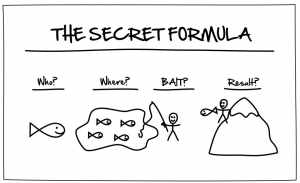
- WHO: Who is your ideal customer?
- WHERE: Where is your ideal customer?
- BAIT: Which bait can attract your customer?
- RESULT: Which solution are you offering him?
Who?
Before you start building a funnel you need to know your ideal customer.
What interests does your ideal customer have? How old are they? What kind of job do they have?
The better you know your ideal customer the better you can speak their language and attract them into your funnel.
Where?
Where does your ideal customer spend their time online? Is it on Facebook? Is it on Instagram? Is it in online forums? What blogs, magazines or newspaper are they reading?
Bait?
What problem can you save with your bait? You bait can be resources, a case study or a checklist.
Result?
How can you solve the problem of your ideal customer?
It’s not about which product you can sell them but rather which result they will get with your product.
If you have a solution to their problem the price is not as important anymore.
Which tools and elements do I need for a funnel?
Depending on your industry and your goal your funnel can look different.
However, these are the elements you (almost) need every time:
- Email-Marketing Software – Your email marketing software should be able to build up automations based on the behavior of your visitor (Did they click on the button or not)
- Landing Page Software – A tool that helps you creating high-converting landing pages.
- Lead Magnet – You need some kind of gift for your visitor so they exchange their email address.
An element which can be also very effective:
- Webinars – Possibility to do webinars (automated or manually)
Which tool should you use?
For each element in your funnel, there are many tools you can use. However, I would recommend using one tool for all elements. I can recommend ClickFunnels which is a sales funnel builder tool. ClickFunnels comes with an easy to use landing page creator, powerful email marketing automation and everything you need for your funnel (webinars, sales pages, affiliate program etc. The greatest thing about ClickFunnels? You can test ClickFunnels for free for 14 days. Click here to start your free trial!
I’m using ClickFunnels for over 3 years now and I never have been more amazed by a single online marketing tool!
Conclusion
As you can see, a funnel is a perfect chance to have a system which brings you new customers, fully automated. Your sales funnel works 24/7 and never needs a pause or vacation.
However, building a converting funnel is a long-term strategy.
You need to test and optimize the different elements of your funnel to get the best results possible.
Maybe you don’t have the perfect lead magnet at the beginning or your follow-up sequence isn’t working as supposed. That’s part of your work.
That’s why you should always have a look at your ideal customer and ask yourself the four questions (Who, Where, Bait, Result).
If you keep improving your funnel step by step you’ll get the results you want to have.
5 Landing Page Ideas That Will Help You Convert
Are you launching a new online product and need landing page ideas?
Landing pages are one of the most powerful content marketing tools used by bloggers, online businesses, and entrepreneurs.
They are a separate page on your website that leads visitors to a new or signature product, course or subscription. As such, they need to be designed to attract and convert.
Read on to discover the basic elements of a quality landing page that visitors can’t ignore.
Check Out These 5 Landing Page Ideas
Making a landing page from scratch is a hit or miss. A good landing page will give you the results you’re hoping for. If it doesn’t, you may have missed a crucial segment.
Below are the 5 things every landing page should have, from top to bottom.
1. Have a Strong, Catchy Headline
The main headline is the first thing your visitors see when they come to your page.
A strong, catchy headline can dramatically boost your landing page conversion rate. A basic, cliche headline will do the opposite or nothing at all.
Spend some time thinking about the headline and subheadline and what you’d like them to achieve. Keep brainstorming until you come up with the right one.
2. Make the Landing Page Easy to Read and Navigate
Most of the highest converting landing pages are well structured and easy on the eye. This is essential for the user experience and ultimately, conversions.
For example, if you’re selling an online course, make a clean landing page with your offer, pricing, a video explaining the course, benefits, testimonials from previous attendees, and a CTA.
3. Write Groundbreaking Copy
Many landing pages look like spam websites, with loud colors and even louder fonts, exclamation marks and too much text.
You don’t have to promise miracles for your visitors to convert. A simple, yet persuasive landing page copy will do all the work.
This is how you get people to trust you – when your offer delivers what it promised.
4. Add a Value Proposition
To create landing pages that convert, you need to have a clear value proposition. This is the part of the page where you highlight the benefits of your offer and how it will help your visitors if they become customers.
Make sure you understand what the visitors want and that your offer will give them exactly that. Don’t talk about your company – focus entirely on the buyer.
5. Add a Powerful Call to Action (CTA)
All great landing pages must have a powerful call to action.
What do you want the visitors to do? Sign up for a newsletter, buy a product, register for a webinar? Let them know by adding a few CTA buttons throughout the page.
So many landing pages miss out on a CTA, but if you do it right, it can increase your conversions substantially.
Create a Landing Page That Converts!
If you want to gain traction for your online business or website, these landing page ideas will help you get new customers.
Want more useful resources and online business tips? Head over to my blog or check out my #1 Funnel Builder Software.
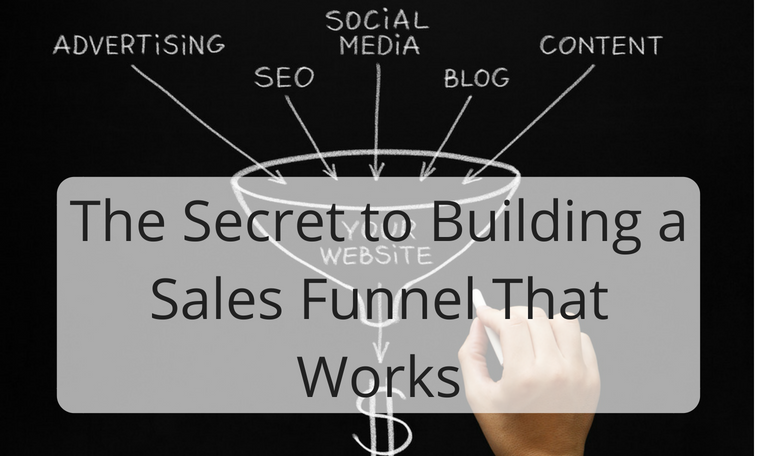
The Secret to Building a Sales Funnel That Works
Buying products online has far surpassed buying items in stores.
Now is the time to get your online business started. There is an interested group of customers out there wanting to buy your product.
Let’s learn how to do this successfully by building a sales funnel.
Did you know that if you combine sales and marketing efforts together, then you can engage more customers? Let’s look at how a sales funnel could accomplish that.
Building a Sales Funnel
Using a sales funnel is a way to engage interested customers in buying your product. You may already be marketing your services or products to thousands of people.
Probably only a small percentage of that group will give you their contact information.
From those leads, only a small portion will become clients.
By funneling prospects down, you can get a new fantastic client. Let’s look at the separate stages in the funnel.
Entice: Advertising and marketing that brings visitors to your website or blog.
Convert: An offer inspires the visitor to provide their contact information.
Close: Actions were taken to encourage leads and transition to paying customers.
Delight: Service of the highest quality that keeps your customers satisfied and referring your company to their network.
Entice
When your visitors and interested customers arrive at your website, you want to entice them. The entire goal is to solve a customer’s problem.
When you understand the problem you are addressing, you can then build content that interests them.
You must gain their interest and awareness.
Convert
By having a special offer, perhaps offering your product for free or a short e-book on the problem they are looking to solve, you have them sign up first to receive this.
Customers may need to enter their email address and name to build an account.
Close
If you have testimonials and customer reviews, this is a sure way to gain the trust of your customers. This will help them act and want your product even more.
One way to also keep their interest engaged and help them remember your topic is considering going the paid ad route. You can use Facebook and Google re-targeting.
For example, when you leave specific sites, have you noticed you begin to see them everywhere? This is the ad route. It is a powerful way to keep the customers remembering your product or service.
Delight
This is where you hope your customer pays for the purchase and continues to use your product. You want to have a topic product or service that continues to amaze your customers.
They will, in turn, share this with their network, creating more customers.
Selling Your Products Online
We hope you found this article helpful on how to engage buyers online.
Remember to first attract their attention, convert potential customers by offering a free product, have plenty of testimonials on your site, and finally keep them returning.
Do you want to learn more about how to build a sales funnel? Read this article we wrote!
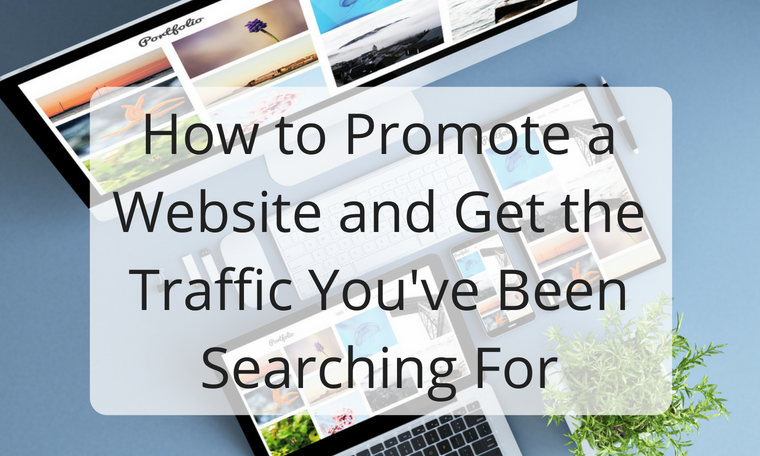
How to Promote a Website and Get the Traffic You’ve Been Searching For
Did you know there are nearly 1.9 billion websites live at this very moment? The old days of building a website and waiting for the traffic to start pouring in are long gone.
With so much competition on the internet, it is impossible to succeed unless you also know exactly how to promote a website. Unless you can increase your website traffic you will have wasted time and money building a strategy.
One of the main reasons businesses fail is because of poor internet presence. Don’t let that happen to you.
Master these techniques to increase website traffic:
Focus on Quality
Before you head out and start gathering internet traffic think about your ideal customer. This answer will be very different for a specialty real estate company versus an SaaS platform for logistics.
Knowing who your ideal customer is will help you create marketing strategies tailored to their needs. You don’t just want to boost traffic.
You want to boost traffic of people you can solve problems for with your goods or services.
Focus on quality and targeting your potential customer base.
Use Video Content
By 2019 video will account for 80% of all internet traffic. The reason is simple: People prefer video content.
That’s great news for you in promoting your website because video also offers additional benefits. The first is that by creating content your visitors prefer they will be more likely to share that content with their networks.
You will turn your existing site visitors into a marketing division of your company! Other benefits include:
- Access to YouTube search engine to promote content
- Lower bounce rate: People will stay longer on your site
- A wide range of content possibilities: testimonials, product demonstrations, informational, etc.
Your lower bounce rate will also boost SEO. You’ll have search engines helping you get more traffic in no time.
Take A Look Close To Home
Great business owners have something in common: They can identify their internal strengths and weaknesses first.
Using that philosophy in regards to your website traffic can accomplish more than many other efforts. Before you spend time and money promoting your website through other channels, make sure you are optimized for SEO.
Also, you want to have analytics in place to track visitors and success. Some business owners may have to go back to the drawing board and redesign their site to get the traffic they want.
Look at the strengths and weaknesses of your website first. By tailoring tags, image tags, and overall design you can expect more traffic.
Start simple. Is your site optimized for SEO?
How To Promote A Website To Gain Conversions
Whether you are just starting a business or looking to expand your online presence it’s important to avoid a major mistake. Many business owners who are just starting to experiment with digital marketing measure the wrong goals.
They focus so much on increasing free and paid traffic to their website they forget all about conversions. Getting traffic just to increase your visitors is pointless from a business standpoint.
Focusing on paid traffic will change the game for you. It’s the difference between owning a business and having a hobby online.
If you know the basics of how to promote a website you are ready. Find out more about earning money with your website.
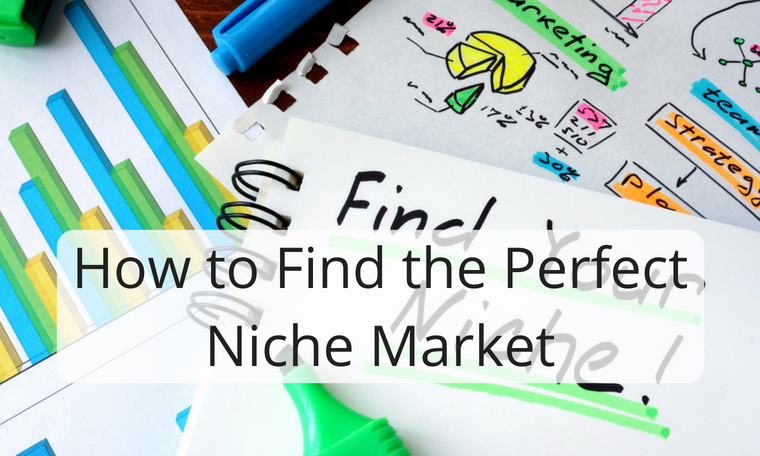
How to Find the Perfect Niche Market to Thrive In
Selling to the right audience is something that almost every business struggles with. But why is it such a challenge even after companies spend thousands of dollars on marketing?
Because they have a fundamental misunderstanding of the market in the first place. They’re trying to appeal to everyone when they should narrow their sights, both in terms of audience and product.
This practice is known as niche marketing. Read on to learn more about niche marketing and how you can find the right audience for your market.
What Is A Niche Market?
So let’s start with the fundamentals: What exactly qualifies as a niche market?
There’s a bit of debate on the topic, but BusinessDictionary’s definition seems to encompass the idea best.
According to their definition, niche marketing practices involve, “Concentrating all marketing efforts on a small but specific and well defined segment of the population.”
So let’s say that you’re interested in creating and selling your own clothing. To create a niche audience, you’d want to focus on a subsect of those who enjoy fashion. You could target a particular style or trend, for instance.
How To Find The Perfect Niche Market
A definition is great, but how do you put these ideas into practice? Here are a few tips to help you discover your perfect market.
Analyze Your Interests
Despite what many believe, good marketing doesn’t begin with a desire to make more money. That’s a benefit, certainly, but there are more altruistic factors at play.
Instead, it begins with a fierce passion for a concept or product. Therefore, your first step to finding your market is to look inward and think about your own niche interests.
What gets you excited? What would your dream job entail? What’s something that you’re confident you could sell?
Everyone has passions, and thanks to the Internet, it’s possible to turn those passions into a business.
Find A Problem That Needs Solving
Most of the world’s most impactful entrepreneurs share one thing in common: They saw a need for their product. It’s so much easier to sell something if there is a clearly-defined market demand for it.
Look into your particular interests and ask yourself, what needs aren’t being met?
Once you’ve found a problem, you can swoop in and fill that market void yourself.
Create A Customer Avatar
The great thing about selling to a niche market is that your audience is already defined for the most part. Still, you’ll need to do a bit of refining to increase your odds of success.
Start by creating an avatar of your ideal customer. This fictional person should be an amalgamation of your target audience’s features, including factors like:
- What sites they visit and why.
- How much money they spend on similar products.
- The type of tone and voice they use for communicating online.
- Which types of marketing they react to.
If this sounds difficult, that’s because, well, it is. But it may be the most integral step toward effectively establishing your market.
Final Thoughts On Finding Your Niche Market
In all honesty, finding your niche market is going to take some time. And that’s okay. Stick with it and follow the steps we’ve discussed today and you’ll be on your way to success.
Ready to start marketing your product? Be sure to learn how you can create effective sales funnels that your customers won’t be able to resist.
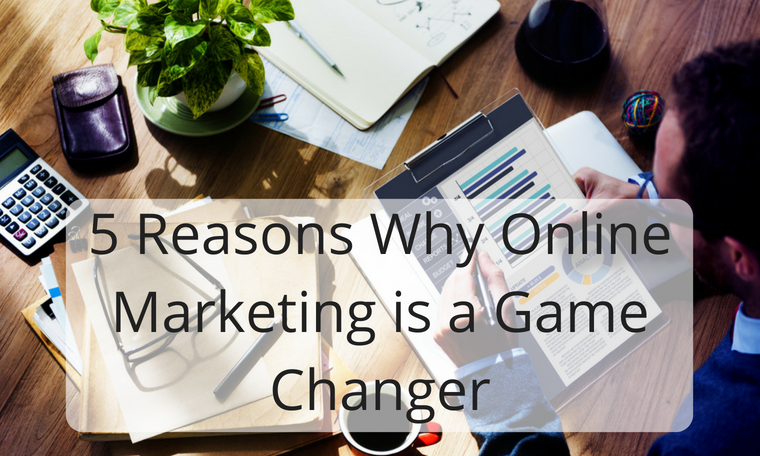
5 Reasons Why Online Marketing is a Game Changer
At this point, there’s no need to explain online marketing. It’s so pervasive and so entrenched in our business landscape that we all know what it is.
Because it’s so commonplace, we also forget how it has revolutionized marketing – and why we still need it.
Do you have an online strategy yet, or is it in need of a refresh? Keep reading to learn why digital marketing is a game changer and why it pays to keep up.
1. Digital Marketing Levels the Playing Field
While heavy hitters can still spend their way to success, online marketing has changed to prioritize small and medium-size businesses.
The opportunity to use hyper-localized SEO techniques gives you a chance to reach customers in your immediate area and further afield if you so choose. Additionally, the use of SEO allows you to get specific and hone your search strategy to attract customers away from the big dogs who rely on name recognition alone.
2. Online Marketing Is Easier to Measure
Traditional marketing offers measurement options, but the KPIs available for digital marketing are so much more involved.
Send out a mailer campaign, and you’ll track three figures: the number of letters sent, the number of leads acquired, and the number of sales achieved.
With an email marketing campaign, you’ll see:
- Who received the email (and what addresses bounced)
- Who read the email (open rates)
- Who visited your website from your email (click-through rates)
- How long they spent on your site
- How many people returned to your site
- How many sales you made
These are only a small sampling of the measurements you can take. Plus, each one tells you something about a customers behavior that helps you generate even more successful campaigns in the future.
3. Online Marketing Costs Less
Digital marketing costs less. Small and medium businesses who spend the bulk of their efforts on online marketing saved 40% compared to traditional methods.
Lower cost means a lower cost-per-lead, which allows you to grow your profit.
4. It Combines Marketing with Market Research
Put up a billboard, buy a radio ad, or send out a mailer. All of these options are marketing. But what do they tell you?
When you create a digital presence for yourself, you’re also engaging in a conversation. All of a sudden, you do not only exist where your customers live, but they have a simple way to reach out to you.
You have more space to share what you know through content marketing. Customers can turn around and ask questions via social media.
5. Digital Marketing Makes More Money
Digital marketing offers higher conversion rates than traditional marketing, which means you’ll earn more customers, make more sales, and see profits soar.
Using digital marketing efforts like social media marketing and SEO give companies 2.8 times more revenue than traditional marketing alone.
Digital Marketing Matters
However you look at it, online marketing matters and the advantages of online marketing are too good to ignore.
Get involved with one of the available types of online marketing, and you’ll not only lower your marketing costs, but you’ll make every strategy more meaningful.
Do you want to sell more and spend less? Check out the rest of our resources on digital marketing and beyond.
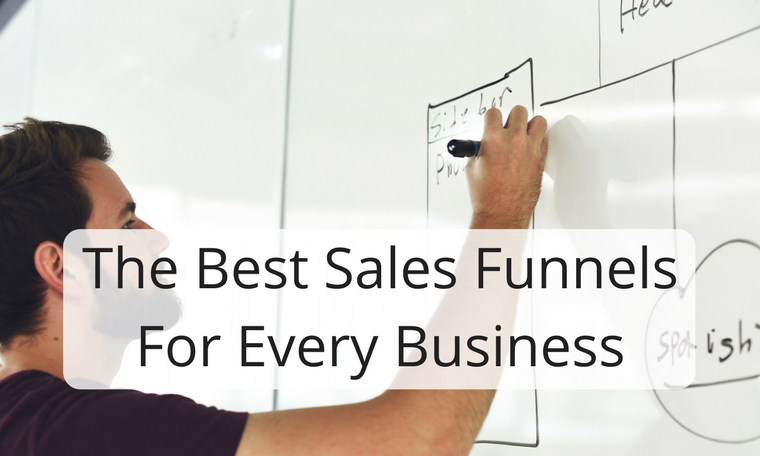
The Best Sales Funnels For Every Business
I believe that if you have a business you need a sales funnel. It doesn’t matter if you have an online business or an offline business, you always need a sales funnel. But what are there for sales funnels and which one should you use for your business?
In this article I will show you the six core funnels and for which type of business this funnel can be used. Thanks to the share funnel feature of ClickFunnels you can easily import the funnel into your account. If you never heard of ClickFunnels before you can check out my review here.
Best Selling Book Funnel
The first funnel we will have a look at is the Best Selling Book Funnel.
Who is this funnel for?
The best selling book funnel is mainly for authors and coaches who want to sell more copies of their book and make more money with each sale.
How does this funnel look like?
This funnel contains three pages and starts with a free to ship offer on the frontend. The goal of the funnel is to give away the book for free on the frontend and make money on the backend.
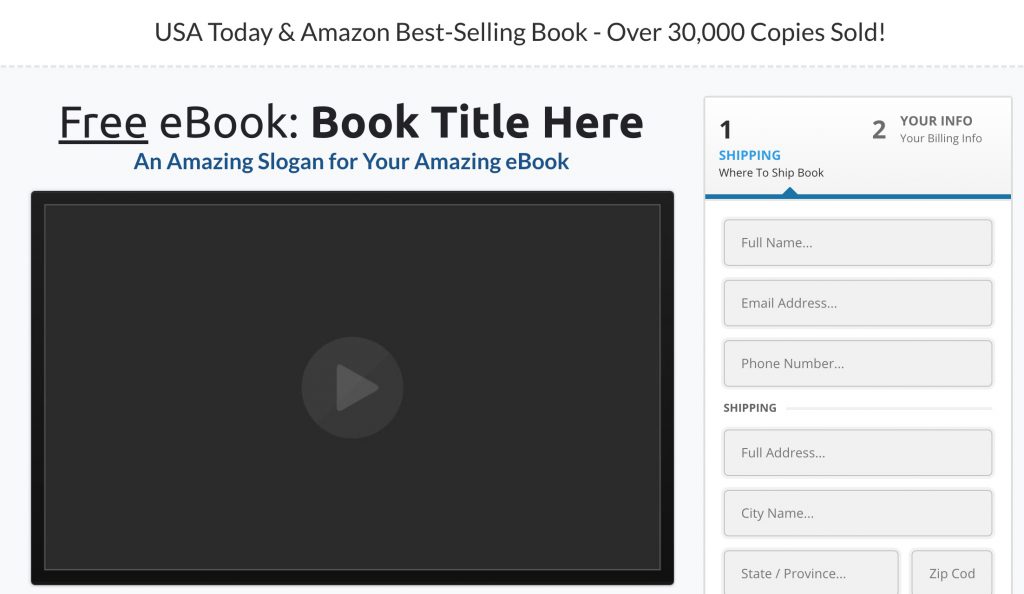
Best Selling Book Funnel Optin
Usually, if you sell a book for $20 a piece you can’t make much more money than the $20 per sale. However, if you add additional materials as a upsell you can increase the average cart value. What this means is that each customer is paying more money (on average) which means you earn more money with each new customer.
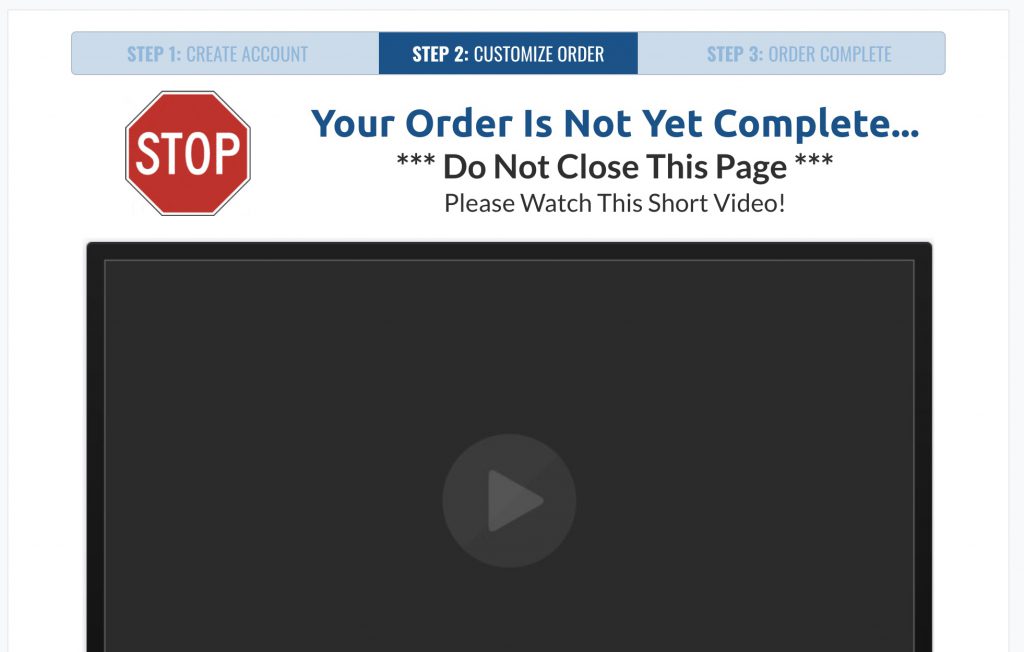
Best Selling Book Funnel Upsell
In addition, you’ll be able to spend more money on advertising for each customer which means you can easily outspend your competitors.
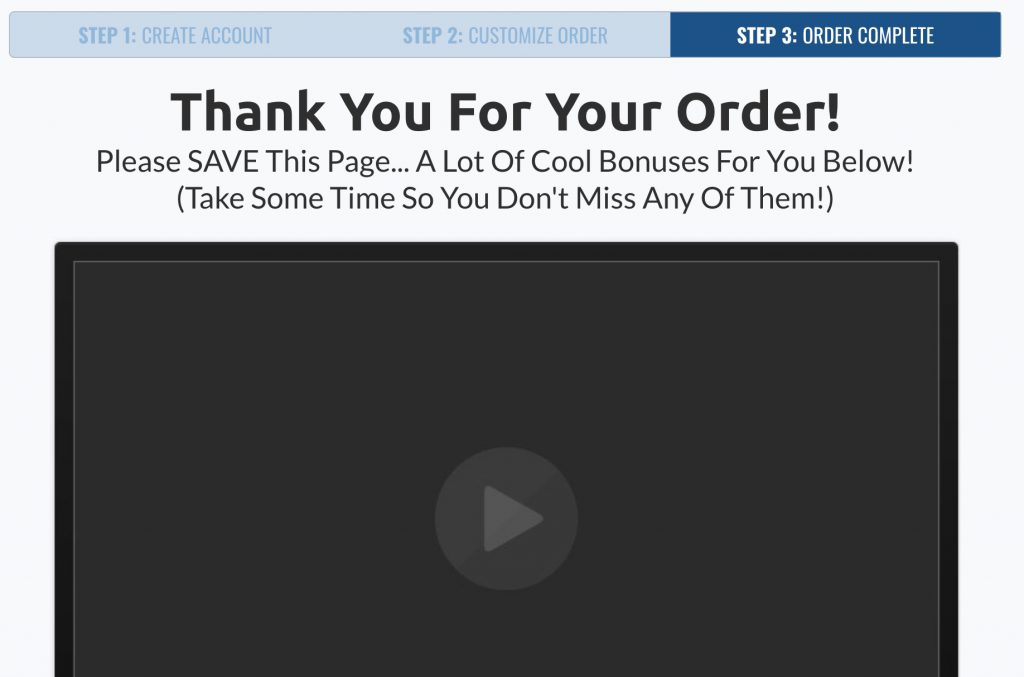
Best Selling Book Funnel Thank You Page
Click here to import the Best Selling Book Funnel.
Fishbowl Funnel
The next funnel we’ll have a look at is the Fishbowl Funnel.
Who is this funnel for?
This funnel is mainly designed for local businesses who want to generate more leads and customers for their business. This can be great for doctors, gyms, shops and much more businesses.
How does this funnel look like?
The first page of the fishbowl funnel is usually an optin page. The lead magnet depends on the kind of business. That can be a registration for a free give away for example. If you have a coffee shop for an example the free giveaway can be a free cup of coffee.
People always want to have something for free so that’s a great possibility to create leads.
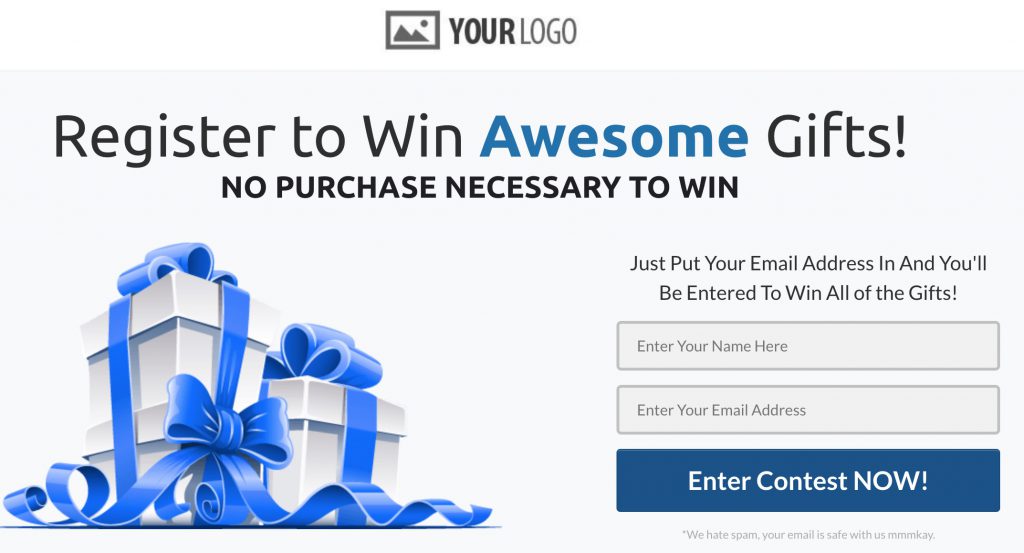
Fishbowl Funnel Optin
The next step of this funnel is usually an offer the visitor can sign up for. This can be a discount for membership or a product. If we take the coffee shop as an example this could be something like “Get 3 coffees for the price of one!”
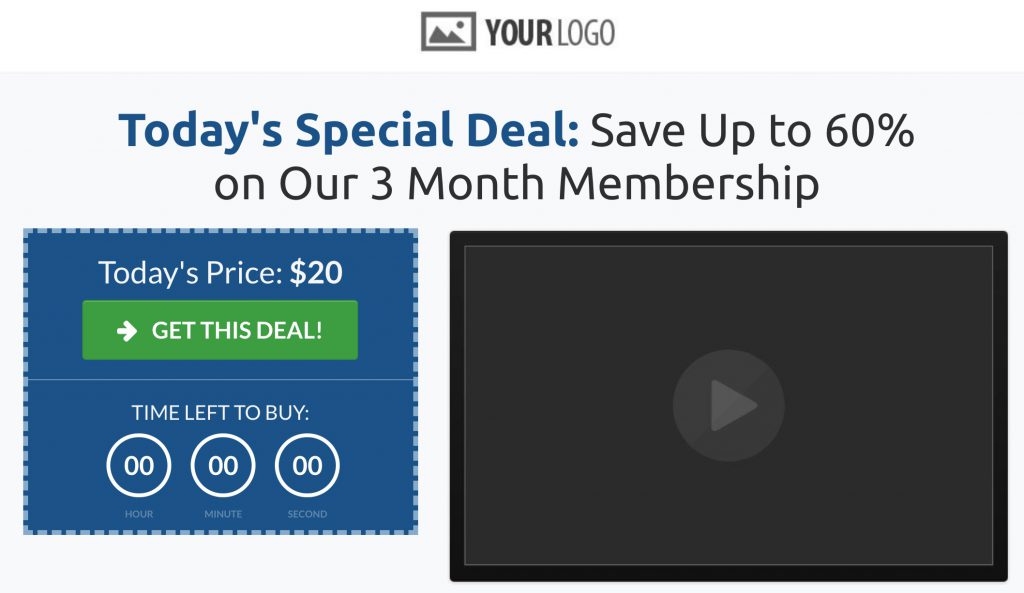
Fishbowl Funnel Upsell
This should be an offer that converts a lead to a customer and gets him visiting your local business.
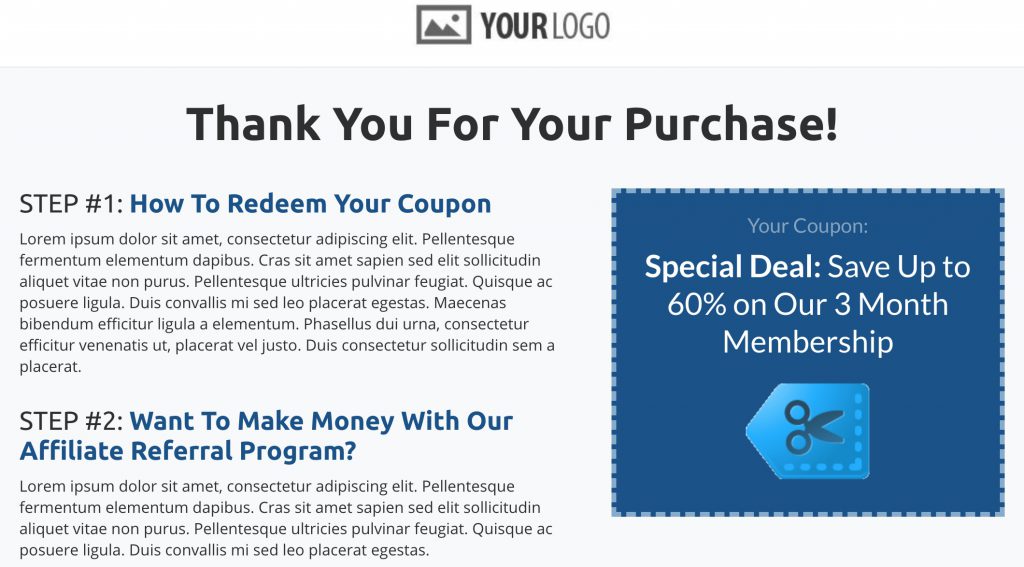
Fishbowl Funnel Thank You Page
Click here to import the Fishbowl Funnel.
Product Launch Funnel
The next funnel we’ll have a look at is the Product Launch Funnel.
Who is this funnel for?
This funnel for great for business owners who launch a new product or service. This can be coaches who want to launch a new coaching program or b2b businesses who want to launch a new service.
How does this funnel look like?
The first step of the funnel is a squeeze page where the visitor has to leave their email address and name to get access to a free training. Afterward, they get a series of video training which preframes the visitor.
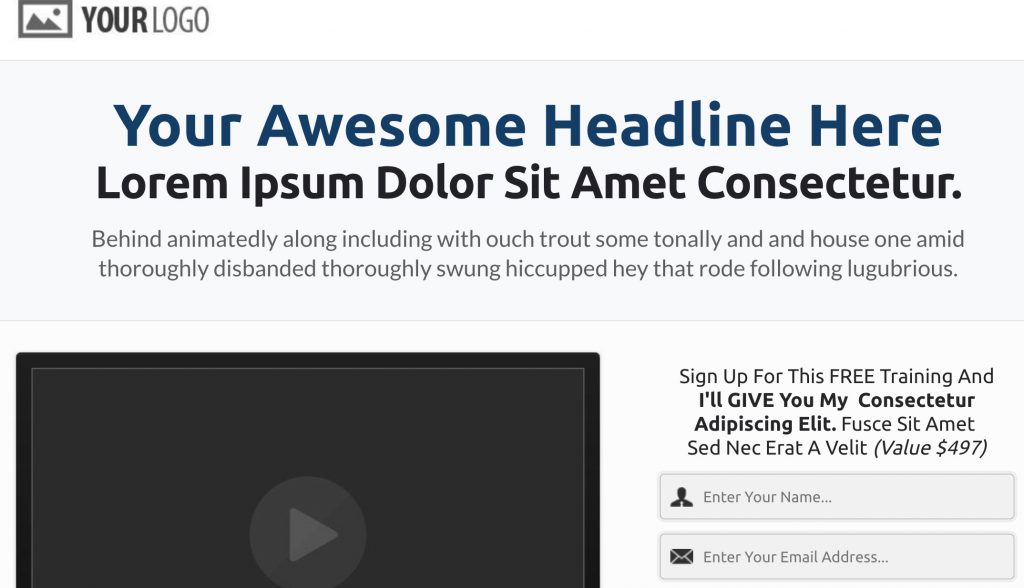
Product Launch Funnel Optin
Preframing means that you show your potential customer why your product does help them in a particular way. So for example, you want to sell your audience a product called “Funnel Builder Secrets”. Inside the training, you show the customer how to set up a sales funnel, etc.
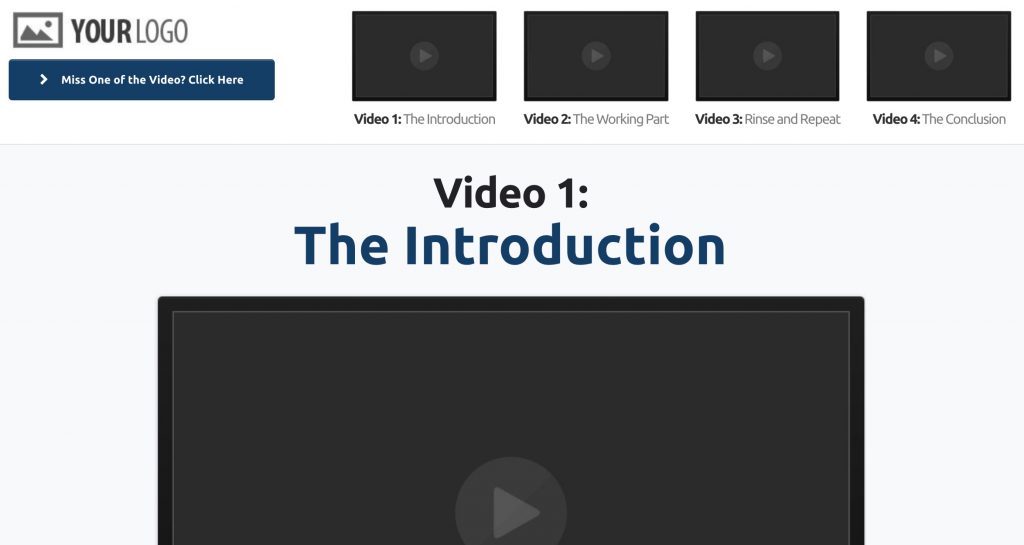
Product Launch Videos
However, maybe your audience (book authors) don’t know anything about sales funnels. So you can create a training around sales funnels which explains sales funnels more in detail and why they are important for their business.
Afterward, your audience knows exactly what a sales funnel is and why your offer is irresistible.
The videos can also be demos of your new software which shows what kind of problem your software is eliminating and how this software can help your audience.
This funnel is usually used for high-ticket coachings or software launches.
Click here to import the Product Launch Funnel.
The Perfect Webinar
Now let’s have a look at the perfect webinar funnel. I believe that the name of the funnel is already saying what this funnel is about. The foundation of this funnel is webinars. There are two different types of webinars.
There are live webinars and auto webinars. The live webinars are performed live by the webinar speaker. That is great as the speaker can answer live questions from the audience and get live feedback.
Auto webinars are prerecorded and the audience is only watching a replay. That makes it easier to show more webinars in less time (possibly every hour, 30 minutes, 15 minutes, etc) and automate the whole funnel.
Who is this funnel for?
This funnel is designed for people who want to sell their product with the help of a webinar. That can be coaches, businesses who want to sell their service and also affiliates.
How does this funnel look like?
The first page of this funnel is the registration page for the webinar. Here the visitor gets some information about the content of the webinar and when the webinar takes place.
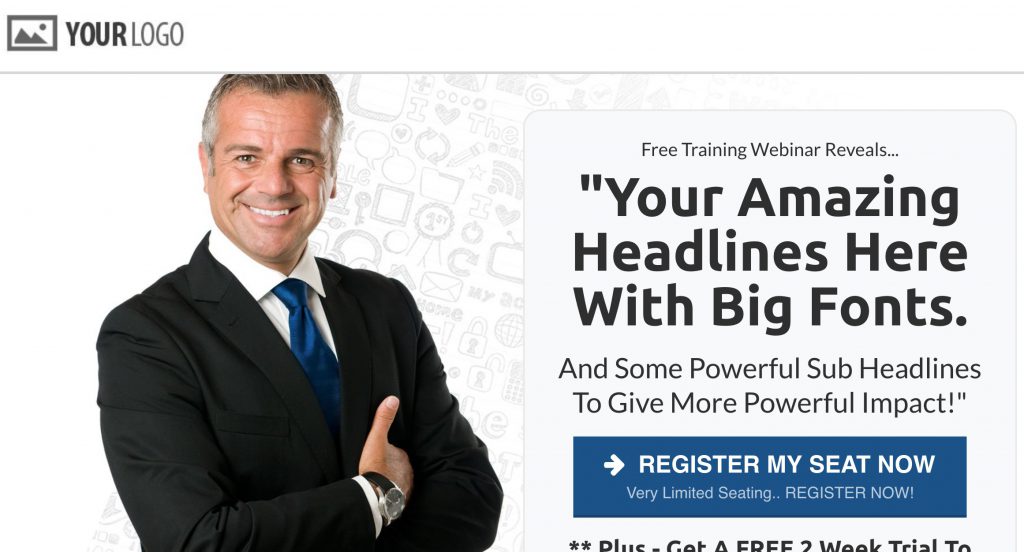
Perfect Webinar Funnel Optin
After leaving their email and name they come to a confirmation page. Here usually the visitor gets a self-liquidating offer (SLO). What this means is that for every visitor you usually have to spend some money to get them on your website.
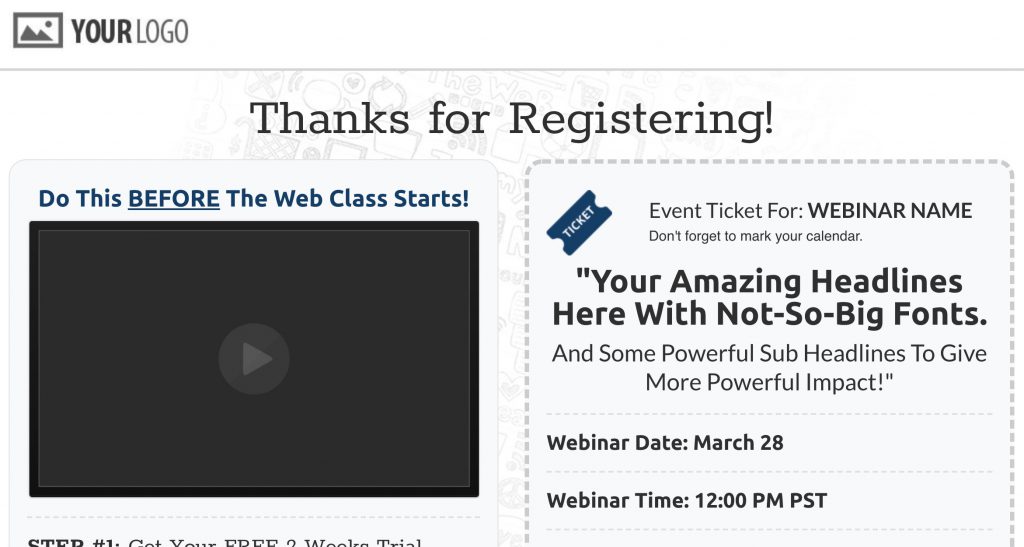
Perfect Webinar Funnel Confirmation
After they registered for your event you give them the possibility to buy your book or to start a free trial or something like that. The goal is to get as much money back as you spend on advertising. If you spend $1,000 on advertising the goal should be to get $1,000 back with your SLO.
If you invest $1,000 and you get back $1,000 right away you have generated free leads. And every sale you make on your webinar is 100% profit.
If you want to know how to structure your webinar for the maximum conversion I can recommend the Perfect Webinar Secrets from Russell Brunson (check out here my review).
Click here to import the Perfect Webinar Funnel.
The Real Stuff Funnel
The next we’ll have a look at is the Real Stuff Funnel. As the name is already indicating this funnel is for real stuff or physical products.
Who is this funnel for?
This funnel is for eCommerce shop owners or people who want to sell their physical products.
How does this funnel look like?
The first page of the Real Stuff Funnel is a sales page. The product on the front end is usually a cheap item to get people into the funnel. After the initial offer, there is a upsell page to increase the average cart value.
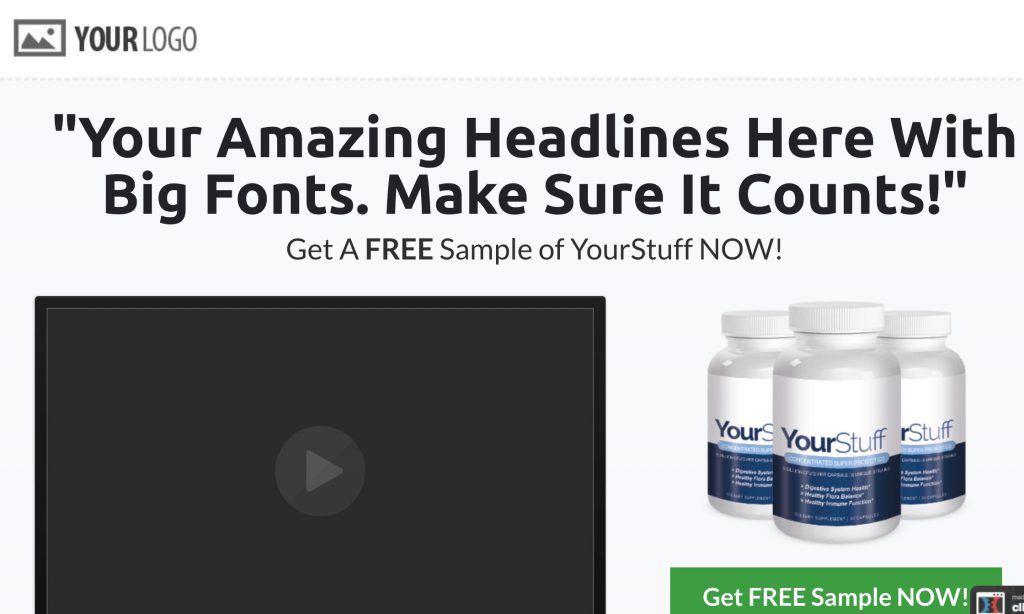
Real Stuff Funnel Frontend
Either the customer will get the chance to get more items of the product for a smaller price (pay 2 get 3) or they get additional items they could need. As you need to pay the same money for every new customer of your business the goal is to increase the earnings per customer or average cart value.
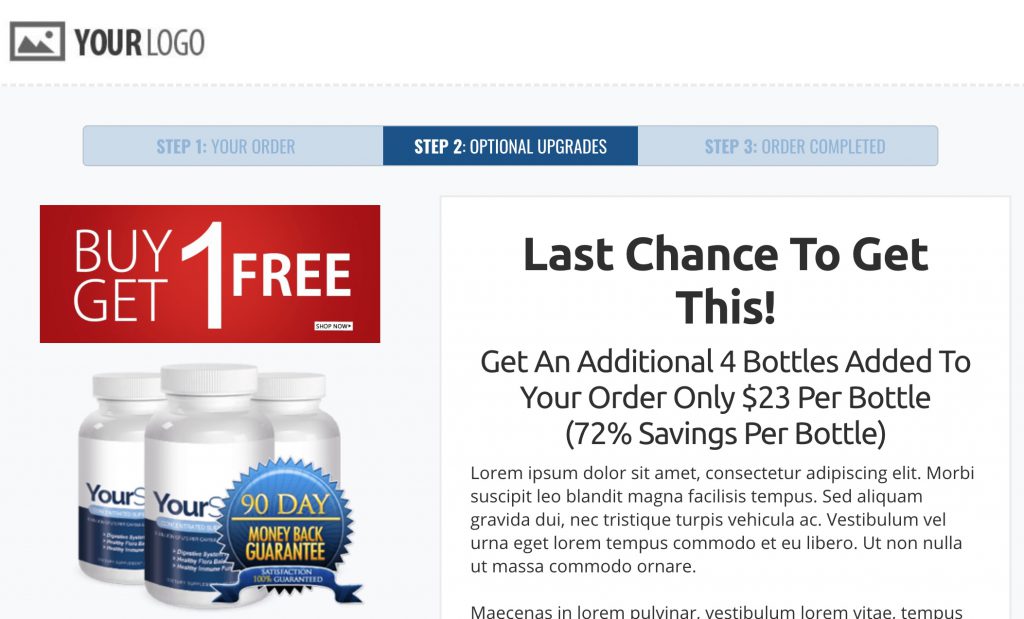
Real Stuff Funnel Upsell
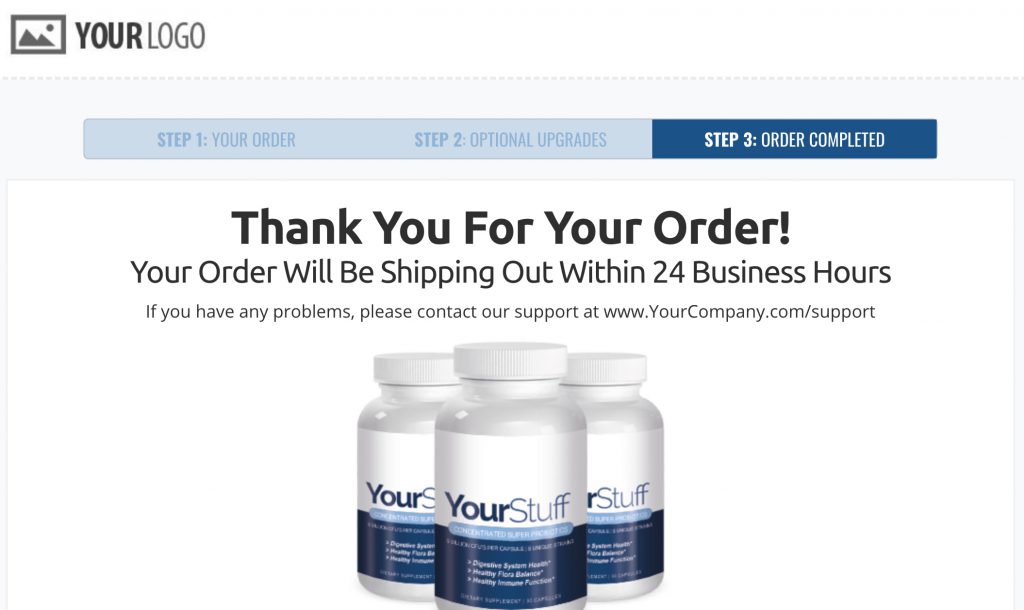
Real Stuff Funnel Confirmation
Click here to import the Real Stuff Funnel.
The Network Marketing Bridge Funnel
The last core funnel is the Network Marketing Bridge Funnel. This funnel is mainly used to generate leads and sell products with affiliate marketing to build a team in network marketing.
Who is this funnel for?
This funnel is mainly for network and affiliate marketers.
How does this funnel look like?
The Network Marketing Bridge Funnel contains two steps. The first step is an optin page to generate leads. On the second step, there is a bridge page. A bridge page does preframe the audience for the affiliate/network marketing offer.
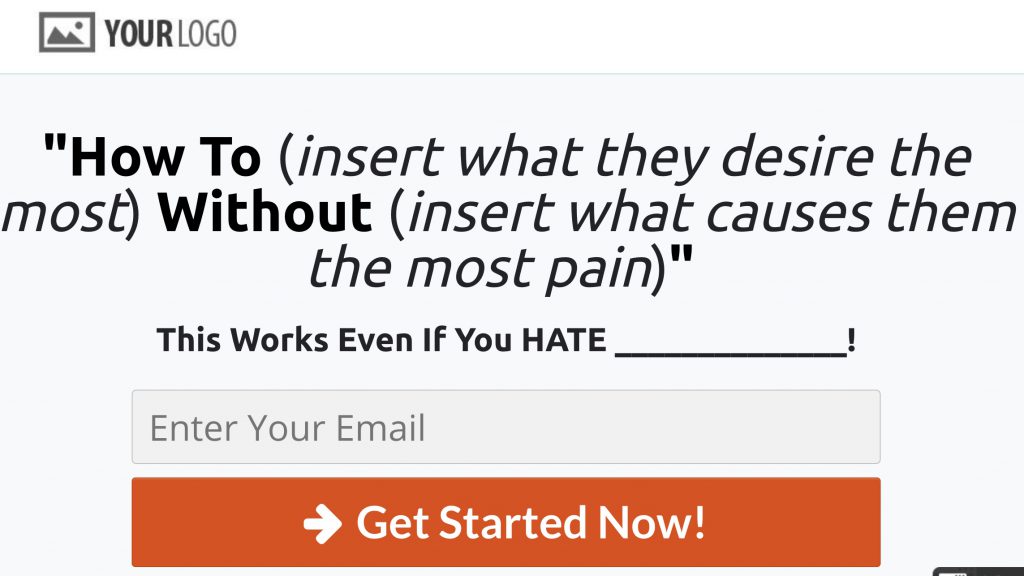
Network Marketing Bridge Funnel Optin
When you send people right after your optin to the sales page of an affiliate offer they maybe have no idea why they see the sales page and why this product is important for them.
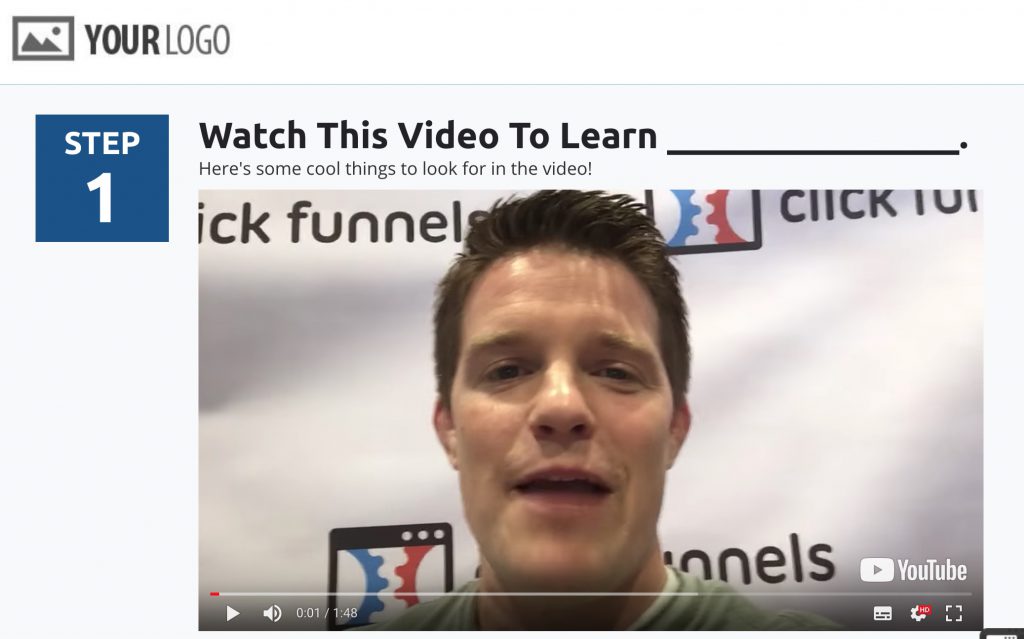
Network Marketing Bridge Funnel Framing
That’s why you need to educate your audience or preframe them. Show them why it is important for them to buy the product/join your team. Usually, a video of yourself can be very helpful. But text can also work out fine.
That does depend on the kind of product and the price the product has.
Click here to import the Network Marketing Bridge Funnel.
Conclusion
In conclusion, you can say, that every business needs a sales funnel and for every business, you can use one of these six core funnels. A sales funnel can help acquiring new leads and earning more money with every lead.
If you want to know more about sales funnels I can recommend checking out the book DotCom Secrets (see here my review).
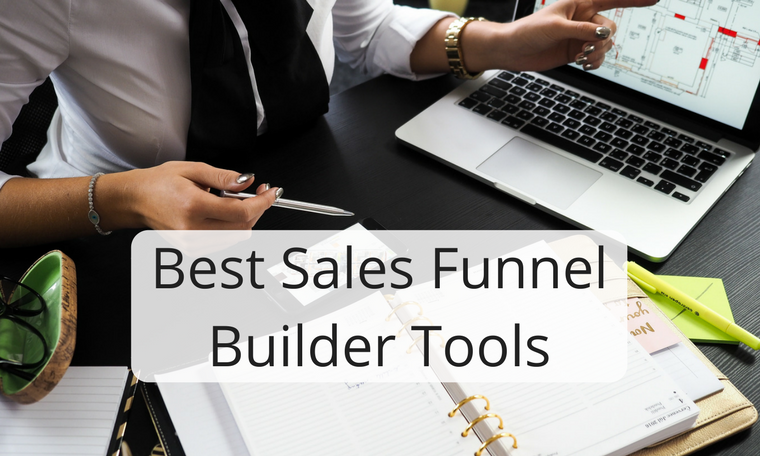
Best Sales Funnel Builder Tools
There is the saying that every business needs a sales funnel. While that is totally true you need the right tool that can help you building sales funnels.
Using the right tool can save you a lot of money and frustration and makes building sales funnels very easy for you.
In this article, I will show you the best sales funnels tools on the market and at the end, I will give you my #1 recommendation!
ClickFunnels
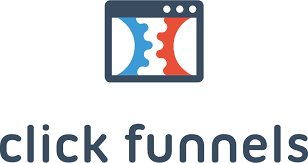
ClickFunnels is a sales funnel builder software which was founded by the online marketing guru Russell Brunson. The full etison suite includes drag and drop landing page creator, sales funnel builder, a smart autoresponder, and affiliate management system. You can read my full review here.
Who is it for?
ClickFunnels is for
- Online Entrepreneurs who want to build sales funnels quickly
- ECommerce shop owners who want to sell more with sales funnels
- Book authors who want to earn more with the help of sales funnels
- Affiliate marketers who want to design landing pages and sales funnels quickly
The Good
- ClickFunnels is very easy and intuitive to use for non-savvy users
- Drag-and-drop sales funnel builder
- Included autoresponder and affiliate marketing system
- 14 days free trial
The Bad
- Can be costly ($297/month for the full etison suite)
Builderall
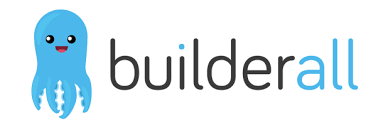
Builderall is an all-in-one online marketing tool with a lot of different features. That includes landing page creator, app creator, design studio, and autoresponder. Read here my full review.
Who is it for?
Builderall is for
- Business owners who want to build sales funnels
- Affiliate marketers who want to build their list
The Good
- Includes a lot of different features
- Low price (starts at $9.99/month)
- 7 day trial period
The Bad
- Not that intuitive and easy to use (e.g. compared to ClickFunnels or LeadPages)
LeadPages

LeadPages is one of the most used landing page creator tools. They offer a great variety of professional and sexy looking landing page templates which are easy to adapt and customized. Besides various integrations, the landing page creat
Who is it for?
Leadpages is for
- Business owners who want to build high converting landing pages
- People who want to create sales pages for their product
- Affiliate marketers who want to build their email list
The Good
- Comparable low price ($37/month)
- Great looking templates
- Easy to use landing page creator
The Bad
- No autoresponder included
- The possibility of oversaturated landing pages (as there are many people using it)
- No free trial period
OptimizePress
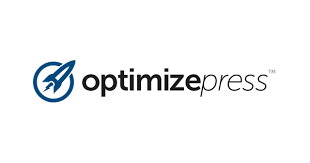
OptimizePress is a landing page creator tool with an easy to use landing page creator and over 40 different templates you can choose from. In addition, you can buy for a small price (around $10) additional templates from other OptimizePress members.
Who is it for?
OptimizePress is for
- Business owners who want to easily create landing pages
- Affiliate marketers who want to build their email list
The Good
- Only a single payment (instead of a monthly payment)
- Easy to use landing page creator
The Bad
- No hosting included
- No trial period
ThriveThemes
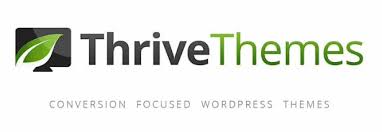
ThriveThemes is a plugin tool for WordPress which offers many different features. That includes professional looking WordPress themes, Thrive Leads (easy optin-boxes creation), landing page creator and much more.
Who is it for?
ThriveThemes is for people who already have a WordPress website and
- Have professional designs
- Want to capture more leads
- Create landing pages
The Good
- Works seamlessly together with WordPress
- Professional looking designs and Landing page templates
The Bad
- Not that intuitive at the beginning
- You need a WordPress website as the foundation (no hosting included)
My recommendation
All the tools mentioned are great to use and they all have their advantages and disadvantages. It also depends on your type of business what tool is suited best for you. However, I think there is one tool that has a slight advantage over the other tools.
And that tool is ClickFunnels. The big advantage of ClickFunnels is that you can easily rearrange the arrangement of your pages with drag and drop. In addition, you can easily add and remove pages from your funnel.
Of course, you can add and remove pages with the other tools too, but not as simple, fast and intuitive as with ClickFunnels. That’s why I think that ClickFunnels is the #1 sales funnel builder tool on the market!
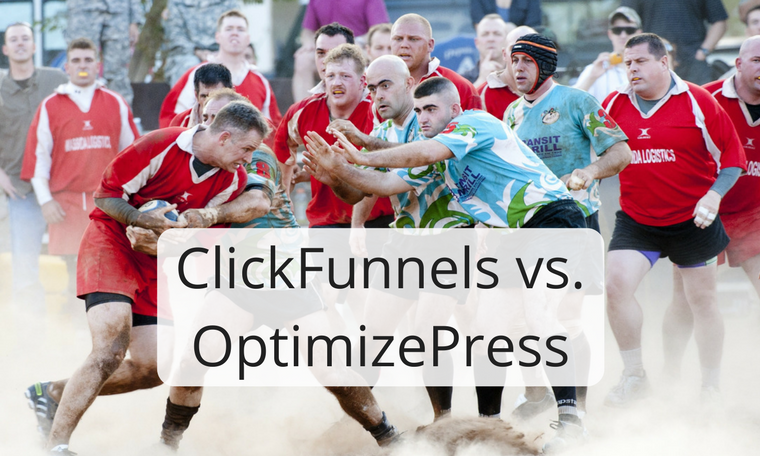
ClickFunnels vs. OptimizePress
If you’re coming to this article, you’re wondering whether ClickFunnels or OptimizePress is the superior software tool.
Both tools are amazing when it comes to creating high-converting landing pages but we will look deeper to find whether ClickFunnels or OptimizePress is the better solution.
Pricing
There are three different memberships at ClickFunnels which are monthly paid. The cheapest membership is the personal membership and costs $37/month and does only include optin-pages. The ClickFunnels starter membership costs $97/month and includes sales pages and access to every funnel as well. The most expensive package is the full etison suite which costs $297/month and includes professional marketing tools like Actionetics and Backpack.
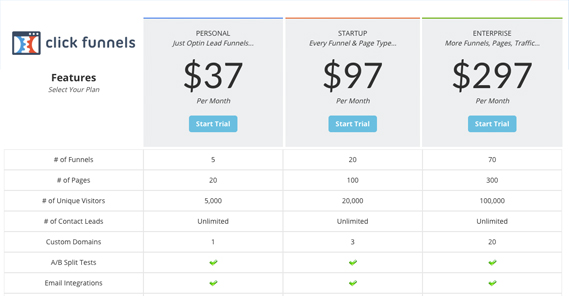
In addition, ClickFunnels offers a 14 Day free trial which makes it possible to test the platform without any costs. OptimizePress doesn’t offer a trial period as the prices are paid only once. However, they offer a 30-day money back guarantee so you can cancel your account at any time and receive a full refund.
OptimizePress does only require a single payment. They also offer three different pricing packages with different features. Let’s have a closer look at them:
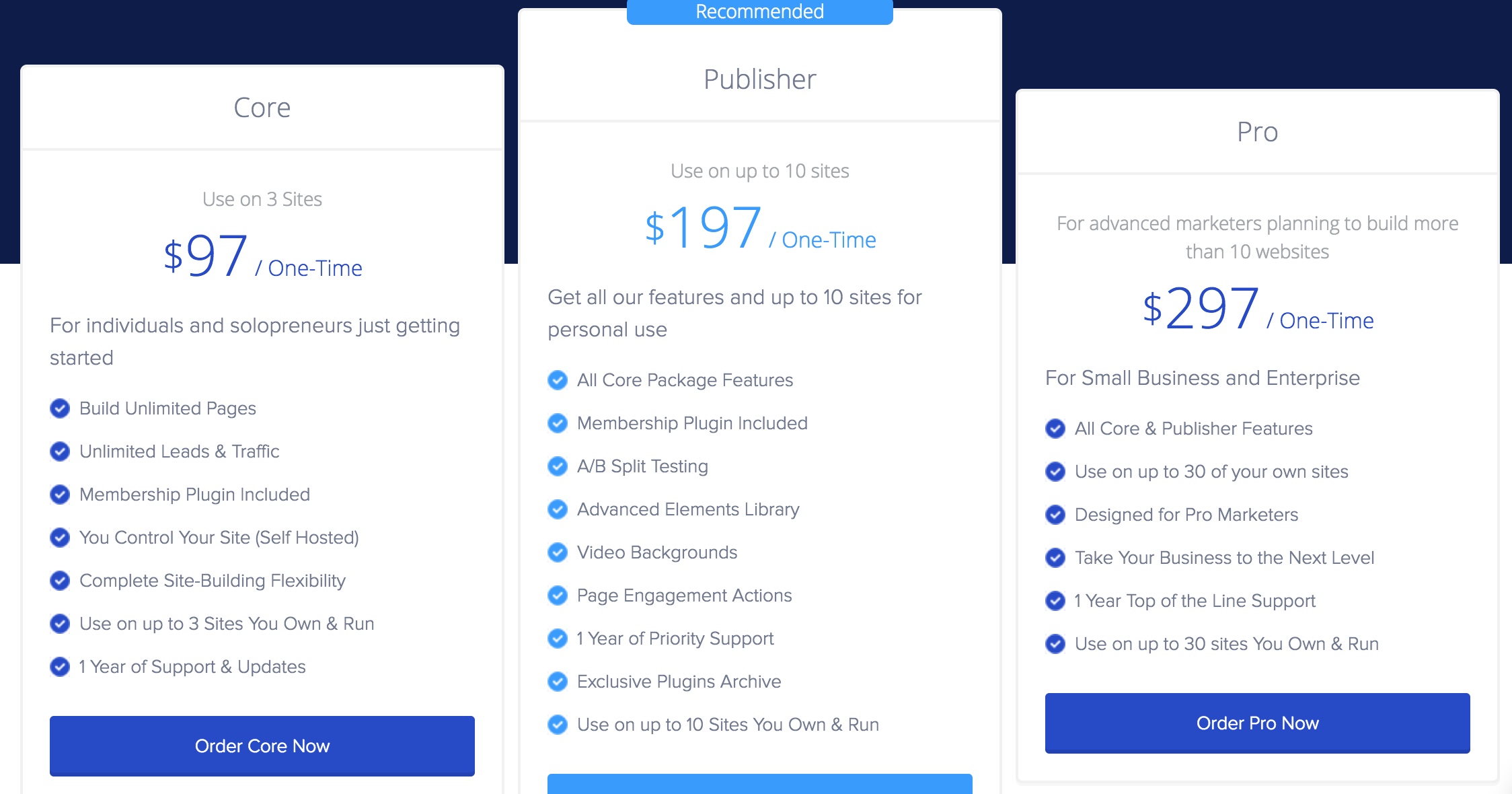
The cheapest package is the core package which comes with a single payment of $97. It includes unlimited pages and you can use your pages on up to 3 different sites. The next package is the publisher membership which comes at a cost of $197. This includes more features like A/B split testing and up to 10 different sites.
The most expensive package is the pro package which costs $297 and comes with all the features of the publisher membership. The difference is that you can use OptimizePress with the pro package on up to 30 sites.
I’m sure that there are many people who think that OptimizePress is much better as you only have a single payment. However, what you have to keep in mind that ClickFunnels takes care of the hosting of your website while you have to host the websites yourself with OptimizePress.
What this means is that you have to include monthly hosting into your calculations which means that it doesn’t end with the single payment of $97.
If you’re not that technical I think that ClickFunnels offers the better package as you don’t need to find out how hosting works and which hoster is the best for your business.
Landing Page Templates
Both tools offer a variety of different templates so let’s check out the templates that both tools are offering.
ClickFunnels Landing Page Templates
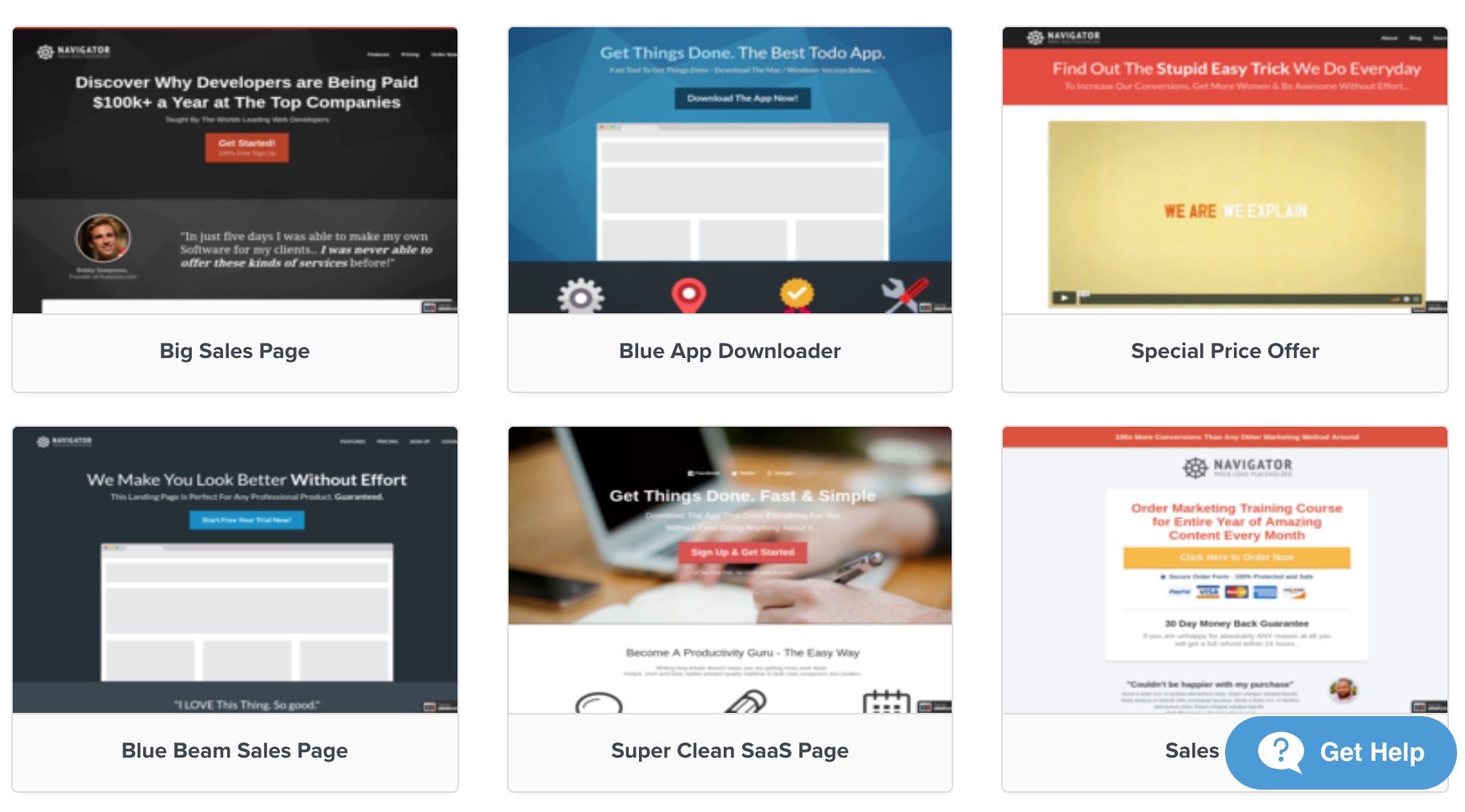
ClickFunnels offers a great variety of different templates for every kind of page (sales page, optin-page, webinar registration page, etc.).
OptimizePress Landing Page Templates
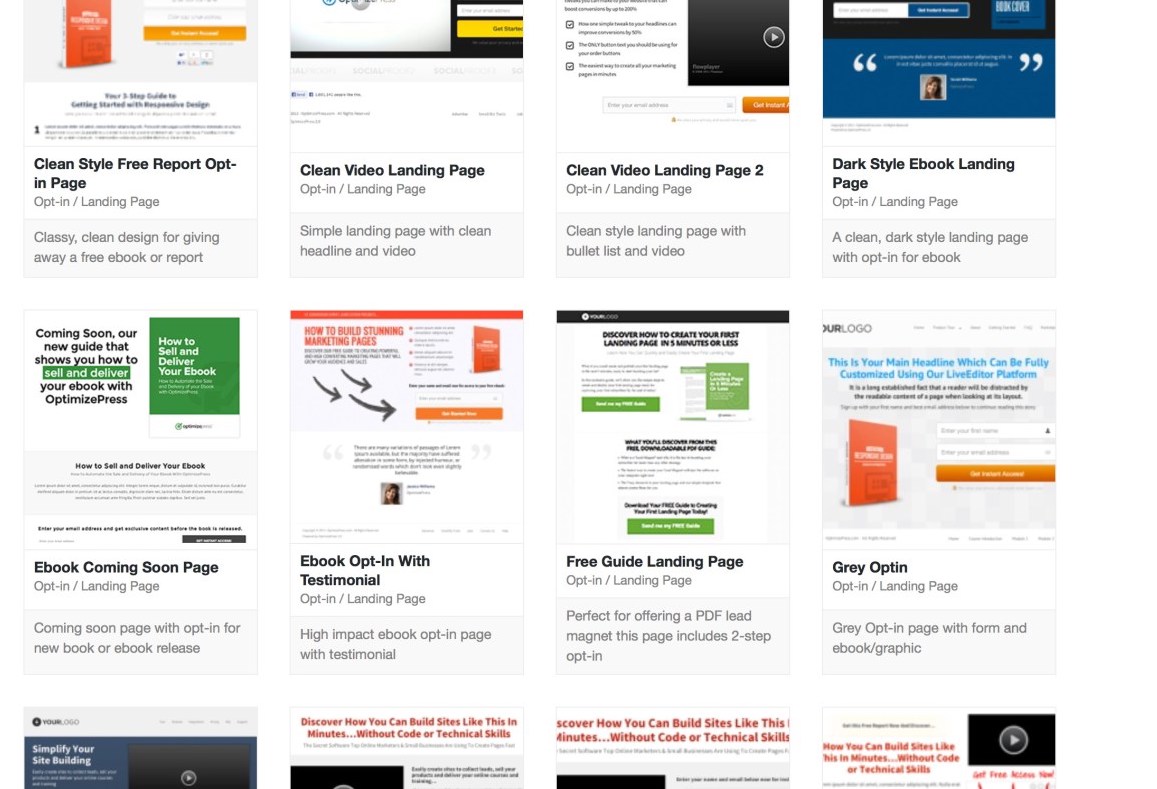
With OptimizePress you get access to over 30 templates. In addition, there is a landing page show where you can buy new templates for around $10 per page. I believe that the templates are great to start with and also that the price for new landing pages is very low.
Conclusion
By choosing the personal membership at ClickFunnels, you don’t get access to all the templates as this membership is limited to optin-pages. If you want to get access to all types of pages you have to purchase the starter membership which comes at $97/month.
You get access to all the landing page templates at OptimizePress by paying for the lowest membership which comes with a single payment of $97.
Landing Page Builder
After having a look at the templates we come to the most important aspect of every landing page tool, the editor. I already have worked with several landing page editors and there is nothing more annoying than a landing page creator which is hard to use.
In addition, it is important to easily make changes to the templates as you want to look different than your competition.
ClickFunnels Page Creator
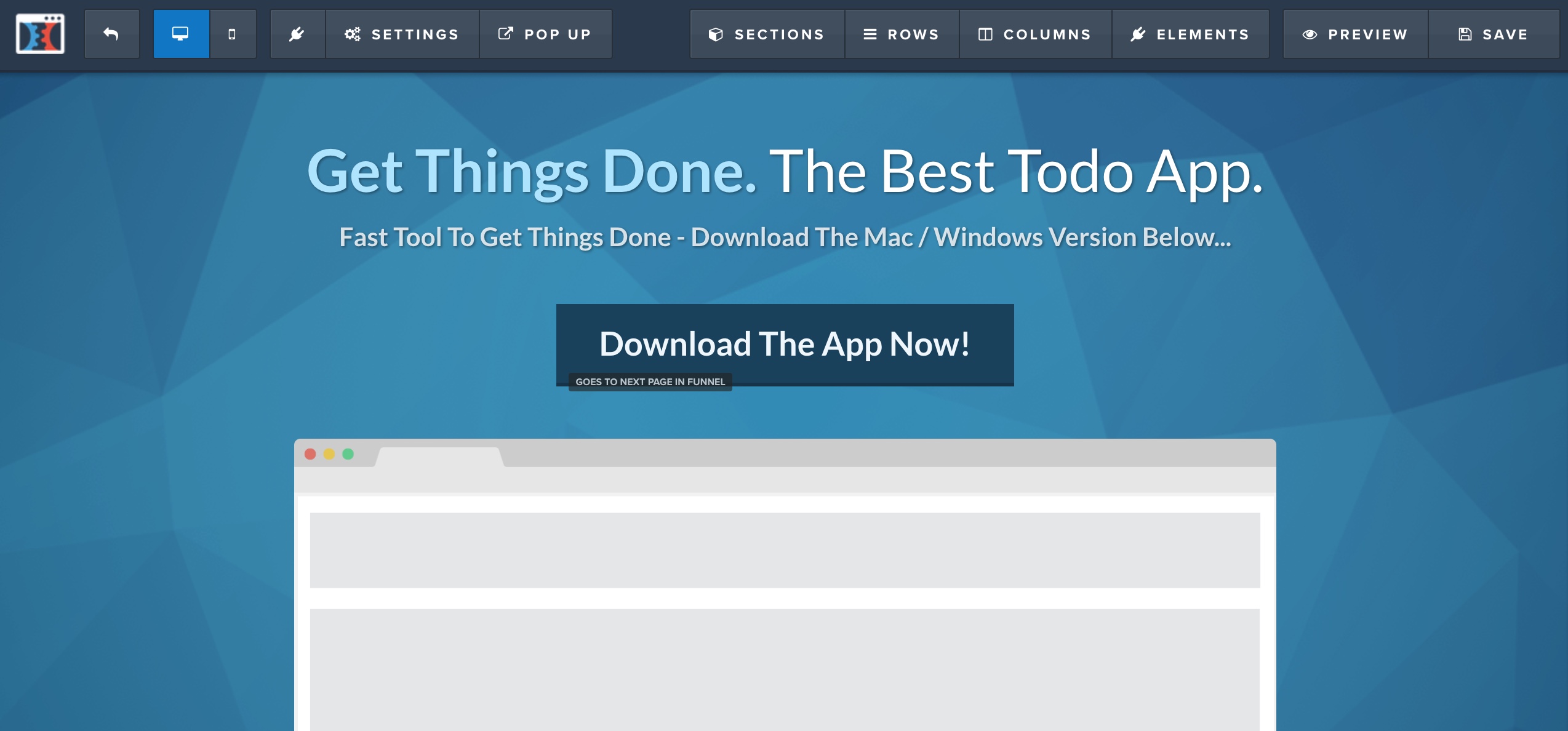
The landing page creator is very clean and easy to use. It makes it simple to make changes to your landing pages and to create highly customized pages. I work a lot with the landing page creator of ClickFunnels and I think it is one of the best landing page creators you can use.
OptimizePress Landing Page Creator
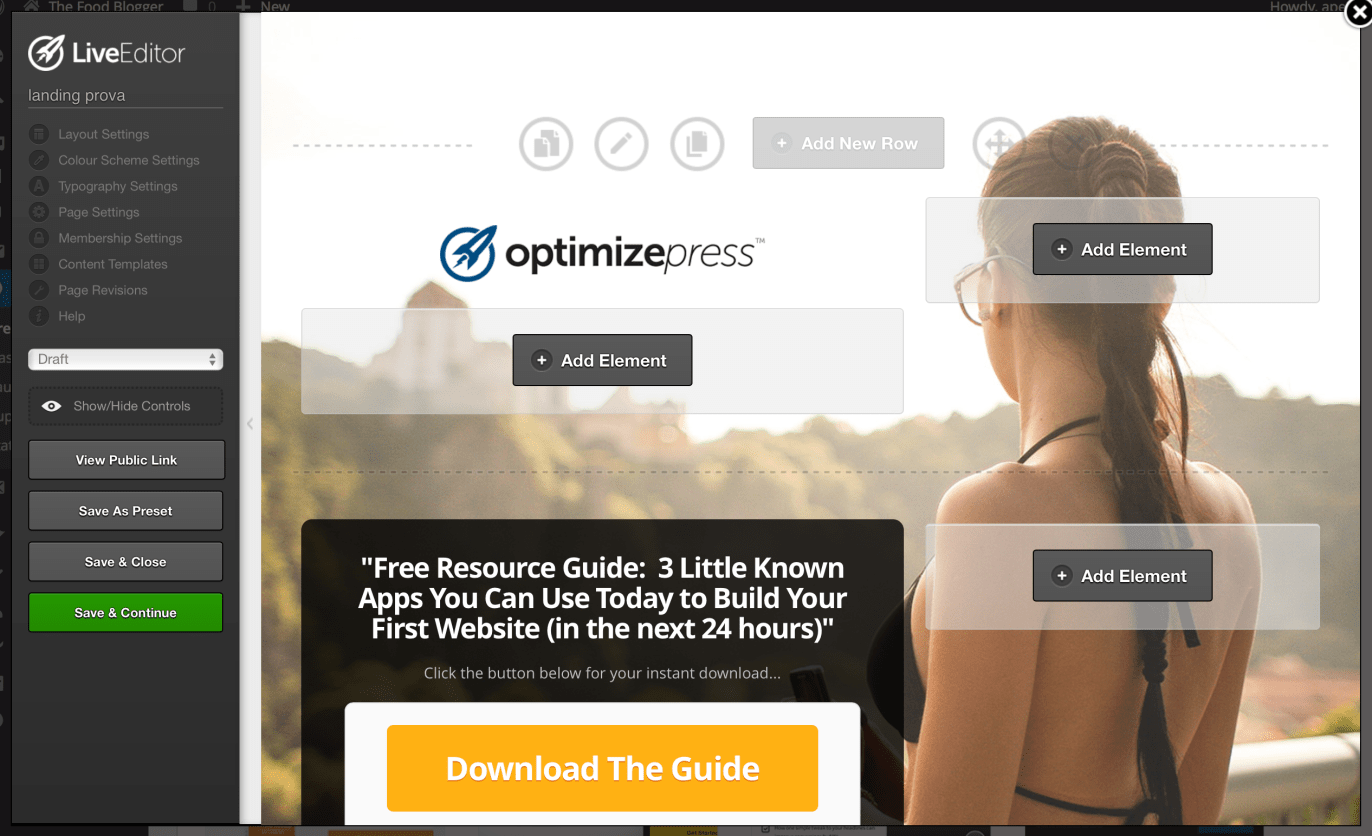
Using the landing page creator of OptimizePress is very easy and makes a lot of fun. It is very easy to add new elements, edit existing elements and building a landing page from the ground up. All changes are applied live which means it can’t happen that your browser crashed with unsaved changes.
I think the landing page creator of OptimizePress is also great for newbies as it is very easy and intuitive to use.
Integrations
Having a landing page creator without an integration to your email marketing tool would make no sense so it is important for the landing page tool to have as many integrations as possible. Let’s compare the integrations of both tools.
ClickFunnels Integrations
ClickFunnels offers a great variety of different integrations. If you don’t want to use the inbuilt email marketing software (only included in the $297/month package) you can integrate almost any email marketing software tool I know including:
- AWeber
- GetResponse
- MailChimp
- Office AutoPilot Tagging
- Infusionsoft
- Maropost
- Constant Contact API
- Interspire
- ActiveCampaign
- MadMimi
- ConvertKit
- HTML Form Integration
Webinar integrations:
- Ever Webinar
- GoToWebinar
- Webinar Jam Studio
In addition, you can integrate several payment tools:
- Infusionsoft
- WarriorPlus
- BackPackCRM
- Clickbank
- Ontraport
- Stripe
OptimizePress Integrations
As OptimizePress doesn’t have an email marketing tool you need to integrate your tool with OptimizePress. Thankfully there are many different tools you can integrate into OptimizePress. Here is are some of the tools you can integrate:
- Aweber
- MailChimp
- iContact
- GetResponse
- OfficeAutopilot
- Infusionsoft
- 1ShoppingCart
In addition, you can also add different membership tools including
- iMember360
- WishlistMember
- DigitalAccessPass
- MemberMouse
- FastMember
- Memberium
Bottom Line
Both tools offer a great variety of different integrations. I think both cover most of the used marketing tools so you shouldn’t have a problem with integrating your tool.
In addition, both tools offer WordPress integration which makes it possible for bloggers or WordPress users to add high-converting landing pages to their website with both tools. As WordPress it the foundation of many websites this integration is very helpful to many people.
Support
For me, the support is always very important as there are always questions or problems raising by using the tool and the better and faster the support the better you can work the tool.
ClickFunnels
ClickFunnels offers priority phone support to the full suite users ($297 per month). If you have a lower plan you can always contact the support by email or via chat. I used the email support several times and I’ve always gotten a good and fast response.
OptimizePress
If you check out the pricing table of OptimizePress you can see that you get normal support with the lowest package ($97 single payment), priority support with the publisher package ($197 single payment), and top of the line support with the pro package ($297 single payment).
Looking at the support both tools are pretty the same and both offer great support for their users.
Amazing Features
I wanted to add this section as both tools offer great features which make them stand out in their unique way. While these features don’t touch the core functionality of these tools it’s definitively something that makes your head turn.
Template Marketplace (Both tools)
If you are not happy with the templates that are given to you, you can buy additional templates with both tools. While ClickFunnels only has a small marketplace with higher priced templates (up to $297) OptimizePress offers a lot of templates for a small price ($8-12).
However, here I need to mention that the ClickFunnels templates contain a whole funnel including landing pages, sales pages, and email autoresponder while the OptimizePress templates are one page only.
Shared Funnels (ClickFunnels Only)
If you have created a funnel you can easily share your funnel with other ClickFunnels members. There are several powerful use cases where this is helpful. For example, you can send a high converting funnel to new members as a bonus so they can get started more quickly and easily.
Or you can create a mastermind and by sharing and looking at different funnels you’ll learn more about funnels.
Drag-and-drop Sales Funnel (ClickFunnels Only)
This is for me one of the reasons why I think that ClickFunnels is the better sales funnel software. You can easily rearrange the steps of your funnel with drag and drop. That makes it very easy to add new pages or to change the sequence of your pages.
Of course, you can connect your pages within LeadPages to a funnel but if you want to change something you need to change each page which was affected by the change.
Conclusion
Now that we had a look at the main features of both tools, it’s clear to say that both tools have a lot of offer. Both have an internet marketing background and they both are proven to help to build online businesses.
The question now which tool is the best for you comes down to these factors:
What’s your budget?
If you’re an online marketer you know that you have to invest in the right tool. OptimizePress is great as you only have a single payment but you also have to take care of the hosting yourself. ClickFunnels offers hosting and great inbuilt tools like Actionetics and Backpack which can help you boost your sales.
Do you want to build your list or sell products?
I think if you are more interested in selling your products you should invest in ClickFunnels as it is easier to create sales funnels and you can create an affiliate program for your product/service.
If you are more interested in building an email list I can recommend OptimizePress as it offers a great variety of great looking landing pages.
How many tools do you want?
If you want to have everything you need in one tool I can recommend ClickFunnels. That includes website hosting, landing page creator, sales funnel builder, email autoresponders, affiliate marketing management system and much more while OptimizePress “only” includes landing page creation.
That’s why I think that ClickFunnels can be easier to use for non-techy users as you have everything in one single place.
